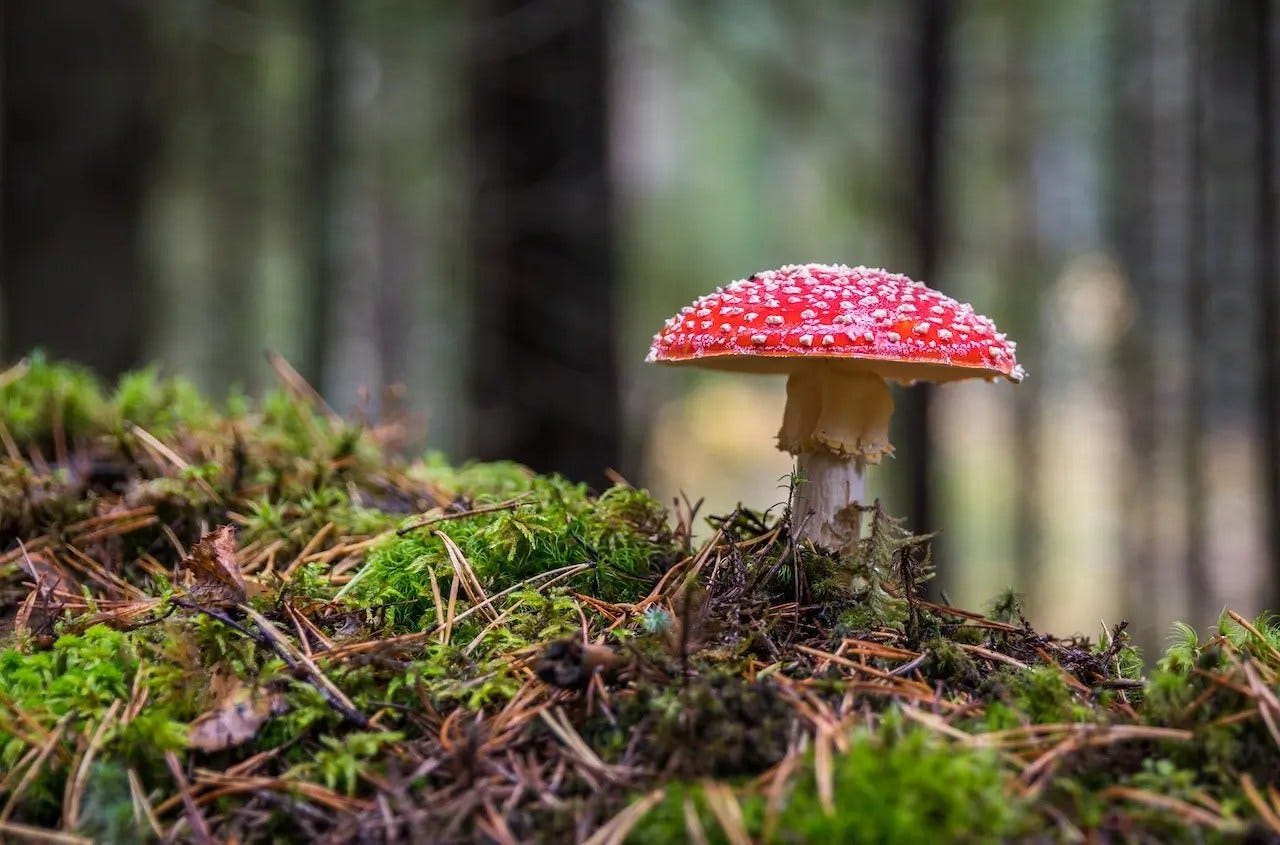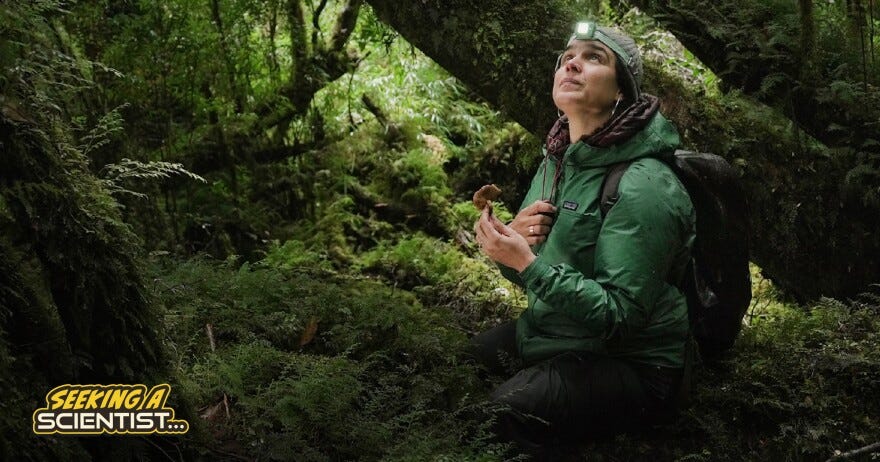Fungi: The overlooked but essential organisms that are changing our world
Fungi Friday's - Date - Issue #86
Hey Fungi Fam,
Happy Friday! And happy holiday weekend, at least for those of you here in the U.S. I can say that, right? Even though technically the holiday isn’t until Tuesday? I think so, at least i’m going to roll with it. We’ve got a full sleight of articles for you this week, all exploring the many different ways fungi are able to benefit us humans and the Earth we know and love. Here’s what we’ve decided to feature for you this week:
In today’s email:
Mushroom spores and their many beneys.
Fungi rule the world, and we need to protect them.
How fungi are rebuilding an entire island.
Iowa Fungi’s Update of the Week
As I noted last week, i’m traveling this week.. so not a whole ton to update you on. That being said, did connect with one of the Iowa Fungi boys and we officially have power — just not in the spot that we originally planned. So… new plan is to move the trailer over to a different side of the farm, and assuming all goes well, we’ll be off to the races next week upon my return home.
THE REMARKABLE BENEFITS OF MUSHROOM SPORES AND MYCOLOGY
Mushroom spores are the reproductive units of mushrooms. They are tiny, microscopic, and can be found in many different environments. Mushroom spores have a number of potential benefits for human health. They have been shown to boost the immune system, fight cancer, and improve cognitive function. Mushroom spores can also be used to treat a variety of other conditions, including allergies, asthma, and depression.
In addition to their health benefits, mushroom spores also have a number of other potential applications. They can be used to create biofuels, bioremediate polluted soil, and even produce new antibiotics. Mushroom spores are a fascinating and versatile resource, and their potential benefits are only just beginning to be explored.
Mushroom spores are a renewable resource that can be grown in a variety of environments. They are non-toxic and safe for human consumption. Mushroom spores are a source of antioxidants, which can help to protect cells from damage. Mushroom spores contain a variety of other beneficial compounds, including beta-glucans, ergothioneine, and selenium.
We are only just beginning to understand the potential benefits of mushroom spores. As research continues, we may discover even more ways to harness their power for human health and well-being.
Psychedelic Spotlight
Do fungi secretly rule our world? Yes, and this mycologist wants to understand and protect them
Fungi are a diverse and fascinating group of organisms that play a vital role in our world. They are responsible for decomposition, nutrient cycling, and the production of many important medicines. However, fungi are often overlooked and misunderstood.
Jennifer Talbot, a mycologist at Boston University, is on a mission to change that. She is studying the role of fungi in the environment and how they can be used to solve some of the world's most pressing problems.
Talbot's research has shown that fungi are essential for the health of our forests. They help to break down dead wood and release nutrients back into the soil. This process is essential for the growth of new trees and the maintenance of healthy ecosystems.
Fungi can also be used to produce biofuels and other renewable energy sources. They are also being explored as a potential source of new antibiotics.
Talbot believes that fungi have the potential to "change the world." She is committed to raising awareness of the importance of fungi and to finding ways to protect them.
Fungi are amazing organisms that play a vital role in our world. They are the most diverse group of organisms on Earth, with over 6 million species. Fungi are found in every ecosystem on Earth, from the Arctic to the tropics. Fungi play a vital role in the decomposition of organic matter, which is essential for nutrient cycling. Fungi are also important producers of antibiotics and other medicines. However, fungi are facing a number of threats, including habitat loss, climate change, and pollution.
We need to learn more about fungi and how to protect them. Jennifer Talbot is doing important work in this area, and she is an inspiration to us all.
More Mushroom Mentions
A fungi that can break down plastic - huge and amazing discovery by scientists in Australia!
Market Report Says the “World Has Discovered a Treasure Trove in Fungi”
How fungi is restoring a broken island
Palmyra Atoll is a remote island in the middle of the Pacific Ocean. It was once a lush and vibrant ecosystem, but it was devastated by the introduction of invasive species and the impacts of climate change. In recent years, scientists have been working to restore the island's ecosystem by using fungi.
Fungi play a vital role in the decomposition of organic matter and the cycling of nutrients. They can also help to improve soil quality and water retention. Scientists have found that by introducing beneficial fungi to Palmyra Atoll, they can help to restore the island's native plants and animals.
One of the most promising fungi being used for restoration on Palmyra Atoll is Pisonia grandis. This fungus forms a symbiotic relationship with the roots of Pisonia trees, which helps to protect the trees from pests and diseases. The fungus also helps to improve the soil quality around the trees, which allows them to grow better.
Scientists believe that by using fungi to restore Palmyra Atoll, they can help to create a more resilient ecosystem that can better withstand the challenges of climate change. This work is still in its early stages, but it has the potential to make a significant difference in the long-term health of the island.
That’s all, folks… but before we let you go, leave a comment below on how we can make the publication even better! And if you haven’t yet, smash that SUBSCRIBE button below.
Thanks for reading as always,
BowTiedMushroom




